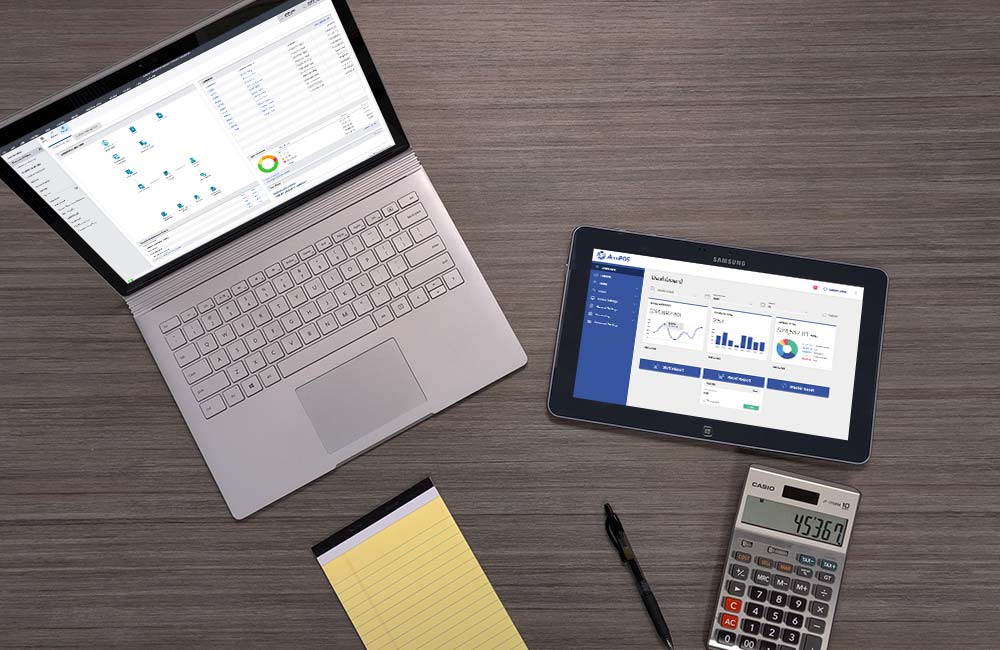Sage 100 ERP: Traditional Powerhouse
Sage 100 ERP, formerly known as MAS 90 and 200, has long been a stalwart in the realm of financial management software. It offers comprehensive features tailored for mid-sized businesses seeking robust accounting, inventory management, and business intelligence capabilities.
Key Features:
- Financial Management: Sage 100 ERP provides core accounting functionalities, including general ledger, accounts payable, accounts receivable, and financial reporting. It supports multi-company and multi-currency operations, making it suitable for international businesses.
- Inventory and Distribution Management: The platform includes modules for inventory management, sales order processing, purchase order management, and warehouse management, facilitating efficient supply chain operations.
- Business Intelligence: Sage 100 ERP offers robust reporting and analytics tools that help businesses gain insights into their financial performance, inventory levels, and operational efficiency. Customizable dashboards and real-time data access empower informed decision-making.
- Customization and Integration: The software allows for extensive customization to adapt to specific business needs. It integrates with third-party applications for CRM (Customer Relationship Management), payroll, and e-commerce, enhancing its functionality and scalability.
- On-Premises Deployment: Sage 100 ERP is traditionally deployed on-premises, offering businesses full control over their data and infrastructure. This deployment model appeals to organizations with stringent security and compliance requirements.

Cloud-Based Financial Management Solutions: Agility and Accessibility
Cloud-based financial management solutions represent a modern approach to managing finances, offering flexibility, scalability, and accessibility from any location with an internet connection. Examples include QuickBooks Online, Xero, and NetSuite.
Key Features:
- Accessibility and Mobility: Cloud-based solutions enable real-time access to financial data from anywhere, facilitating remote work and collaboration among dispersed teams. Users can access the platform via web browsers or dedicated mobile apps.
- Scalability and Flexibility: These solutions are highly scalable, accommodating businesses of various sizes and industries. They offer flexible pricing models based on subscription tiers, allowing organizations to pay for the features and resources they need.
- Automatic Updates and Maintenance: Cloud solutions provide automatic updates and maintenance, ensuring businesses always have access to the latest features and security patches without manual intervention.
- Integration Capabilities: Many cloud-based platforms offer extensive integration capabilities with other business systems, such as CRM, payroll, and e-commerce platforms. This seamless integration enhances operational efficiency and data accuracy across the organization.
- Advanced Security Measures: Cloud providers implement stringent security measures, including data encryption, multi-factor authentication, and regular security audits, to protect sensitive financial information from cyber threats.
Considerations for Choosing Between Sage 100 ERP and Cloud Solutions
- Deployment Preferences: Sage 100 ERP appeals to businesses preferring on-premises deployment and maintaining control over their infrastructure. Cloud solutions are ideal for organizations seeking flexibility, scalability, and accessibility without the need for managing physical hardware.
- Functionality Requirements: Evaluate specific functional requirements, such as advanced inventory management, international operations support, and reporting capabilities, to determine which platform best meets business needs.
- Cost Considerations: Compare upfront costs, ongoing maintenance expenses, and subscription fees associated with each solution. Cloud solutions typically involve predictable monthly or annual subscription costs, whereas Sage 100 ERP may require upfront investment in hardware and software licenses.
- Integration Needs: Consider existing systems and future integration needs. Sage 100 ERP offers customizable integration options, while cloud solutions often provide pre-built integrations with popular business applications.
- Security and Compliance: Assess security protocols and compliance requirements relevant to your industry. Both Sage 100 ERP and reputable cloud providers adhere to industry standards and regulations, but on-premises deployment may provide greater control over data security.
Choosing between Sage 100 ERP and cloud-based financial management solutions depends on your business’s specific needs, preferences, and growth trajectory. Sage 100 ERP offers robust features and customization options for mid-sized businesses requiring on-premises deployment and comprehensive financial management capabilities. In contrast, cloud-based solutions provide flexibility, scalability, and accessibility, making them suitable for organizations embracing digital transformation and remote work trends. By evaluating deployment preferences, functionality requirements, cost considerations, integration needs, and security considerations, businesses can make an informed decision that aligns with their strategic objectives and enhances overall financial management efficiency.
References:
- Sage. (2023). Sage 100 ERP Overview. Retrieved from Sage Website.
- Intuit QuickBooks. (2023). QuickBooks Online Overview. Retrieved from QuickBooks Website.
- Xero. (2023). Xero Cloud Accounting Software. Retrieved from Xero Website.
- NetSuite. (2023). NetSuite Financial Management. Retrieved from NetSuite Website.






While larger corporations often have complex data security systems in place, small businesses can also fall victim to a cyber attack if they do not take steps to protect themselves